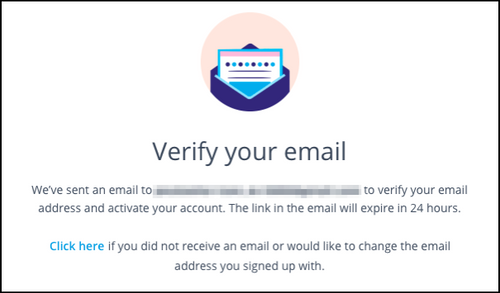Introduction
In today's digital age, where online interactions have become an integral part of our lives, ensuring the authenticity of user data is paramount. One essential tool in achieving this is the email verification link. In this comprehensive guide, we will explore the world of email verification links, uncover their significance, delve into their implementation across various platforms, and understand how they contribute to enhancing user trust and security.
Understanding Email Verification Links
Email verification links, often referred to as confirmation links or activation links, are URLs sent to a user's email address during the registration or account recovery process. These links play a pivotal role in confirming the legitimacy of the provided email address and verifying the identity of the user. Let's break down the key aspects of email verification links:
1. Purpose of Email Verification Links
Email verification links serve several crucial purposes:
Confirmation of Email Ownership: They confirm that the user has access to the provided email address.
User Authentication: They authenticate the user's identity, preventing unauthorized access.
Data Accuracy: They ensure the accuracy of user data, reducing errors and preventing spam.
2. How Email Verification Links Work
Generation: The link is generated by the application and contains a unique token or code.
Delivery: The link is sent to the user's email address provided during registration or account recovery.
Activation: The user clicks on the link, which typically leads to a web page confirming successful verification.
Implementing Email Verification Links
The implementation of email verification links varies across different platforms and services. Here, we explore how email verification links are commonly implemented:
1. Web Applications
User Registration: During registration, users receive an email with a verification link to confirm their email address.
Account Recovery: For password resets or account recovery, users may receive email links to verify their identity.
2. Authentication Providers
Google: Google uses email verification links to confirm and secure user accounts.
GitHub: GitHub requires users to verify their email addresses to enhance security and prevent spam.
3. Educational Platforms
- ApplyTexas: Educational platforms like ApplyTexas use email verification links to ensure accurate user data and enhance security.
4. Identity Verification
- Auth0: Identity verification providers like Auth0 offer email verification as part of their services, enhancing user trust and security.
Significance of Email Verification Links
Email verification links are not just a technicality; they significantly impact user trust, security, and the overall user experience:
1. Enhancing User Trust
User Confidence: Users trust applications that take steps to verify their identity and data accuracy.
Reducing Fraud: Verification links help reduce the risk of fraudulent accounts and activities.
2. Strengthening Security
Access Control: Verification links ensure that only authorized users gain access to accounts.
Data Protection: They safeguard user data and reduce the chances of data breaches.
3. User-Friendly Experience
Reducing Friction: Verification links streamline the registration process, reducing user friction.
Account Recovery: They simplify the account recovery process, helping users regain access quickly.
Common Questions About Email Verification Links
Why do I need to click on an email verification link during registration?
- Explain the importance of confirming email ownership and enhancing security.
How do email verification links prevent spam and fraud?
- Detail how verification links deter fraudulent activities and ensure data accuracy.
What should I do if I don't receive the email verification link?
- Offer guidance on checking spam folders, requesting a resend, or contacting support.
Are email verification links secure?
- Discuss security measures like unique tokens and secure connections that make verification links secure.
Can email verification links expire?
- Explain that email verification links typically have expiration times to enhance security.
Conclusion
In conclusion, email verification links are a fundamental component of the digital ecosystem. They play a crucial role in confirming email ownership, authenticating user identities, enhancing user trust, and fortifying security. Whether you're a developer, a platform user, or an application provider, understanding the significance and implementation of email verification links is essential in today's digital landscape. Email verification links are not just links; they are the keys to unlocking user trust and security.



